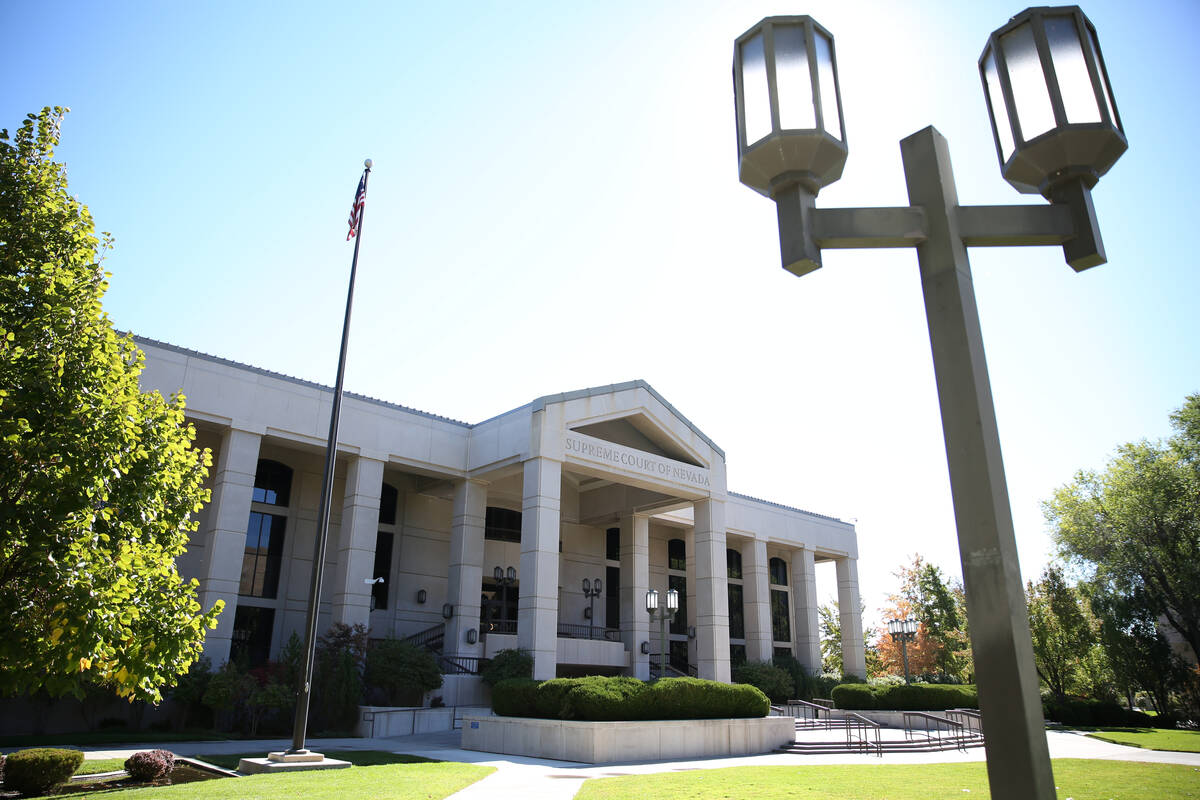Supreme Court hears tax-hike initiative withdrawal arguments

An attorney for Nevada Secretary of State Barbara Cegavske told the state Supreme Court Wednesday that a recently enacted law that allows for a pair of tax-hiking initiatives to be withdrawn after they were qualified is unconstitutional.
And at least one of the justices on the high court seemed to agree.
The comments came during oral arguments Wednesday in a case about whether the Clark County teachers union can pull back two petitions that would ask voters to approve or reject a higher tax tier for the state’s largest, wealthiest casinos and to increase part of the state sales tax by 1.5 percent, raising roughly $2.8 billion for education over two years.
Wayne Klomp, an attorney representing Cegavske, argued that the laws directing the initiative petition process are “self-executing,” and the 2021 law interferes with that process.
Justice James Hardesty noted that there is nothing in the state constitution about withdrawing petitions and said that the language within it “seems to run directly contrary” to the measure passed by the 2021 Legislature that provided the process for a petition that had qualified to be withdrawn. Under the constitution, once a petition to change a statute is qualified, it is sent to the Legislature for review. If the Legislature ignores it or votes it down, the constitution says, “The Secretary of State shall submit the question of approval or disapproval of such statute or amendment to a statute to a vote of the voters at the next succeeding general election.”
Attorney Bradley Schrager, who was representing those trying to withdraw the petition, said there are several other provisions regarding the ballot initiative process that are not in the constitution, such as the requirement for them to cover only a single subject or to have a clear description of the proposal’s effect.
Sponsored by the political arm of the Clark County Education Association, the move turned into a pressure ploy, and in 2021 state lawmakers passed a new tax on mining revenue to generate the sought-after education dollars.
With the mining tax passed, the union agreed to pull back the two petitions, with lawmakers amending a state law to permit the withdrawals. Attorney General Aaron Ford’s office issued an opinion that said the law was constitutional. Cegavske, however, refused to take the measures off the ballot, saying she did not believe the constitution allowed it.
The teacher’s union sued in December, and a lower court judge in March declared that the secretary of state’s office must withdraw the ballot measures. Cegavske’s office appealed the ruling.
Joel Henriod, another attorney for those looking to pull back the petitions, likened groups being able to withdraw the ballots to trials in the court system. He said that while trials are the default process, there are other ways to determine the outcomes of cases, such as reaching a settlement.
“The reason this compromise was possible, this historic compromise in the Legislature, was because the proponents were able to withdraw the specter of those voter questions,” Henriod said.
But Hardesty again questioned that, saying that while “maybe that’s good government, but that’s not a choice that’s contained in Article 19,” of the state constitution.
The Supreme Court will issue a ruling on the case at a later date.
Contact Colton Lochhead at clochhead@reviewjournal.com. Follow @ColtonLochhead on Twitter.